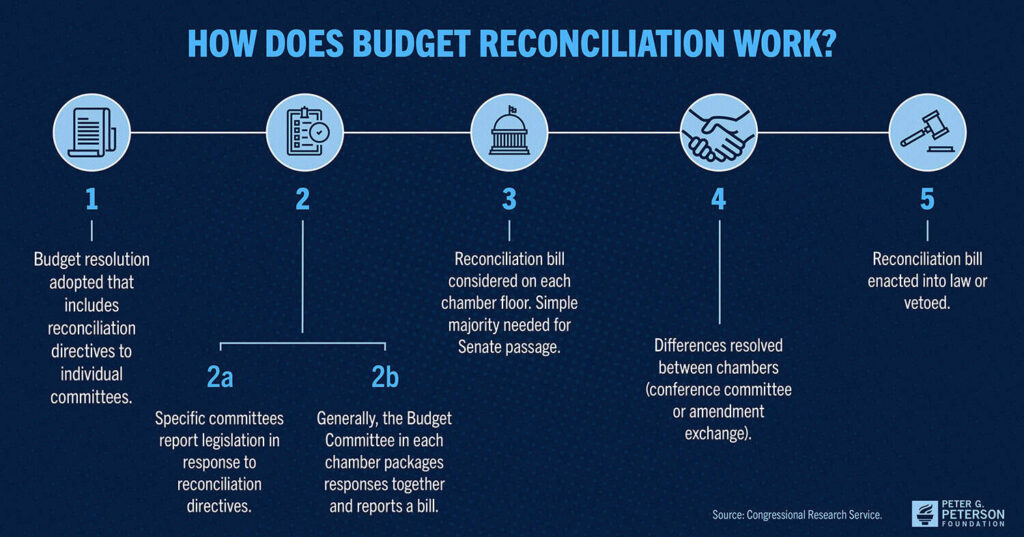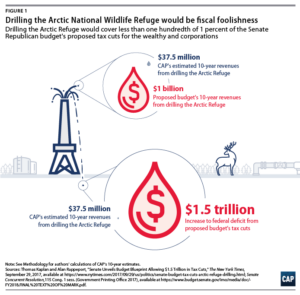What the heck Is Budget Reconciliation—And Why Does It Always Come for the Arctic?

Budget reconciliation might sound like an obscure congressional process, but it’s actually been a backdoor tactic for trying to force Arctic drilling into the federal budget for decades. Originally designed to streamline tax and spending decisions, this process has been repeatedly exploited to push through controversial policies that wouldn’t be passed on their own.
Now, Congress is at it again—using reconciliation to mandate Arctic drilling, despite its unpopularity, economic failure, and lack of real revenue. It’s a political scam to bankroll tax cuts for the ultra-rich by auctioning off public lands.
Reconciliation was never meant to be a loophole for destructive policies. But time and again, it’s been weaponized to put the Arctic Refuge on the chopping block. Understanding this scheme—and how to stop it—is critical to protecting the Arctic, public lands, and preventing yet another political giveaway to Big Oil.
Budget Reconciliation = The Shortcut to Bad Ideas

Source: Congressional Resource Service.
Most Senate bills need 60 votes to pass, thanks to the filibuster. But budget reconciliation is a loophole—allowing certain tax and spending bills to pass with just 51 votes. Meant to streamline budget adjustments, it’s become a backdoor for sneaking in unpopular policies under the guise of “fiscal responsibility.”
Because reconciliation is limited to budgetary matters, politicians looking to exploit it must frame their agendas as revenue-related. That’s where public lands, like the Arctic, come in. Leasing land for drilling or mining technically “makes money,” so lawmakers use it as an excuse to push corporate giveaways through must-pass budget bills—despite the fact that these industries generate little real revenue for us, the American taxpayers.
One of the worst abuses? Using reconciliation to force Arctic drilling into law.
A Long, Ugly History of Reconciliation Attacks on the Arctic
For over 40 years, pro-drilling politicians have tried—and failed—to open the Arctic Refuge to extraction. The public overwhelmingly opposes drilling these lands, so instead of passing standalone legislation, they’ve repeatedly used budget reconciliation as a backdoor to force it through.
This strategy dates back to 1985 when Congress first tried (and failed) to sneak Arctic drilling into a reconciliation bill. It happened again in 1995 (vetoed by Clinton) and 2005 (stripped after public backlash). But the most infamous case came in 2017, when Trump and a Republican-controlled Congress jammed Arctic drilling into the Tax Cuts and Jobs Act—a giveaway to the rich passed through reconciliation to dodge bipartisan support.
The result? A promised $1.8 billion in revenue from the Arctic Refuge barely turning up a mere $14 million. Oil companies wanted nothing to do with it, and most leases have since been canceled or abandoned.
Now, Trump and his allies are at it again. With more tax cuts for the wealthy on the table, they need a way to offset the cost. Instead of real fiscal solutions, they’re dusting off their failed playbook—trying to sell off public lands, including the Arctic Refuge, to fossil fuel interests.
What’s Happening Now?
President Trump’s economic plan is clear: pass another round of tax cuts for the wealthiest Americans (most of which are in his cabinet, btw) while gutting environmental protections and handing over public lands to extractive industries. But tax cuts mean lost revenue, and Republicans need to find a way to make up the difference—at least on paper. That’s where public lands come in.
Rather than increasing taxes on corporations or billionaires, Trump’s buddies in Congress are proposing to lease more public lands for drilling, fracking, and mining as a supposed revenue-generating measure. The Arctic Refuge, despite already proving to be a financial disaster, is once again in their crosshairs. By inserting Arctic drilling provisions into the budget reconciliation process, they can force it through with just 51 votes, bypassing public scrutiny and avoiding the political fallout that would come with an open debate.
But the numbers don’t add up. Arctic drilling didn’t make money in 2017, and it won’t make money now. The market has spoken—oil companies are losing interest in the Arctic, and do not want to drill in the Arctic Refuge. Banks refuse to finance it. Insurers won’t cover it. The financial industry has recognized what Congress refuses to admit: Arctic drilling is a bad investment.
The Economics of Public Lands

Credit: Center for American Progress
If Trump and his allies were serious about balancing the budget, they wouldn’t be pinning their hopes on oil drilling in the Arctic Refuge. The truth is public lands generate far more revenue when they’re protected than when they’re exploited.
Oil and gas leases on public lands bring in pennies on the dollar compared to what industries like outdoor recreation and tourism contribute to the economy. In 2023 alone, outdoor recreation generated $1.2 TRILLION and supported 5 million jobs—far more than the fossil fuel industry on public lands. Yet, reconciliation bills continue to favor destructive, low-revenue industries at the expense of sustainable economic growth.
Drilling in the Arctic is not financially viable. It’s one of the most expensive places in the world to extract oil, and with the global market shifting toward renewables, any project there would be obsolete before it even starts. If the goal is to generate revenue, Arctic drilling is a dead end.
The Bottom Line: The Arctic Should NOT Be in This Budget Deal
 Congress shouldn't be using budget reconciliation to force additional Arctic lease sales into law. This is a budget gimmick, not a real economic solution. Drilling in the Arctic Refuge won’t lower the deficit, won’t create meaningful revenue, and won’t benefit the American people. The only ones who stand to gain are the fossil fuel executives looking for more government handouts.
Congress shouldn't be using budget reconciliation to force additional Arctic lease sales into law. This is a budget gimmick, not a real economic solution. Drilling in the Arctic Refuge won’t lower the deficit, won’t create meaningful revenue, and won’t benefit the American people. The only ones who stand to gain are the fossil fuel executives looking for more government handouts.
The Arctic Refuge should never have been part of a budget bill in 2017, and it DEFINITELY shouldn’t be part of one in 2025. We cannot let politicians continue using reconciliation as a tool to sell off our public lands to pay for tax cuts for the rich.
This is a manufactured crisis—one that puts public lands, Indigenous communities, and our climate at risk for a budget trick that doesn’t even work. The Arctic Refuge should not be for sale, and it definitely shouldn’t be jammed into a budget bill.
Tell Congress: Keep Arctic Refuge Drilling Out of the Budget Bill
The Arctic Refuge belongs to the American people, not oil companies and billionaire investors. Tell your members of Congress that you do not want to hand over our wildest, most-loved places to Big Oil billionaires, gut climate protections, and let us pay the price. Drilling in the Arctic Refuge is too expensive, too risky, and just plain stupid.
